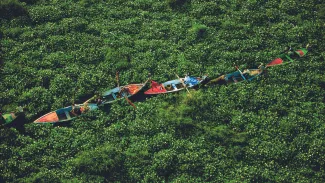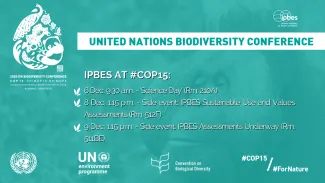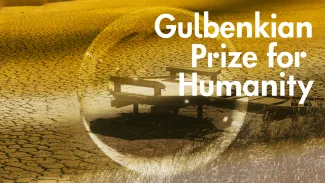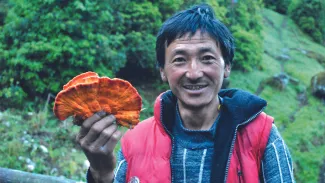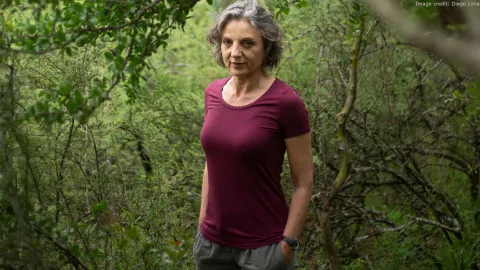
#GlobalAssessment Co-Chair Sandra Díaz chosen as one of 'Nature’s 10'
On 4 May, Sandra Díaz and 144 other researchers had a stark message for the world. They had just finished the most exhaustive study ever of the world’s biodiversity, and the news was worse than most researchers had imagined: one million species are heading for extinction because of human activities, and it will take drastic action to stop that. “The rate at which species are going extinct is at least tens to hundreds of times faster than it has been on average over the past ten million years,” Díaz says. “Our safety net is stretched almost to breaking point.”
Those alarming findings came from the Intergovernmental Science–Policy Platform on Biodiversity and Ecosystem Services (IPBES). Díaz, an ecologist at Argentina’s National University of Córdoba, is one of the panel’s three co-chairs. For most of the previous three years, she and her colleagues — anthropologist Eduardo Brondízio at Indiana University Bloomington and ecologist Josef Settele at the Helmholtz Centre for Environmental Research in Halle, Germany — coordinated the work of experts from 51 countries, meeting in physical workshops and in virtual working groups, poring over 15,000 sources of information.
Their final report, which runs to 1,500 pages, says that nations will fail to meet most global targets in biodiversity and sustainable development unless they make massive changes, such as abandoning the idea that economies must grow constantly.
“We cannot live a fulfilling life, a life as we know it, without nature,” Díaz says. And if economies continue to run in such a destructive way, a “new economic model is needed for nature and people”, she says.
It’s a blunt and, in some ways, radical message. But Díaz does not shy away from speaking out on important issues in science and policy. She challenged, for instance, what was once one of the central tenets in twentieth-century ecology: the idea that ecosystems and their benefits to humans — such as food, or climate regulation — depend heavily on having large numbers of species. Shahid Naeem, a researcher at Columbia University in New York City who studies the impacts of biodiversity loss, says that Díaz has led the charge in highlighting the value of what plants actually do — known as their functional traits.
This insight and others came to Díaz through years spent trudging through the fields of Africa, Asia, Europe and Latin America, collecting leaves, measuring their toughness, and assessing soil properties. It’s a habit she developed growing up in central Argentina, when she would explore the Pampas grasslands while others took their afternoon rests. “I would escape the siesta to see plants and animals,” she says. “Ever since I was an undergraduate, I knew I wanted to be a researcher.”
Díaz has a second career now, beyond conservation science — influencing policy through her work with IPBES. She takes heart in how the panel’s report is being adopted by many social and environmental movements, including Extinction Rebellion, that are pushing for stronger and more urgent action on the environment.
“We have been amazed at its reach,” she says. “The report has come at the right moment.” And despite its dark prognosis, Díaz refuses to be pessimistic about humankind’s capacity to turn things around. “I have to be optimistic,” she says, “because there is no Plan B”.
Read the full article here.
